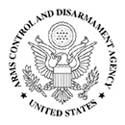
The Treaty on the Non-Proliferation of Nuclear Weapons, commonly known as the Non-Proliferation Treaty or NPT, is an international treaty whose objective is to prevent the spread of nuclear weapons and weapons technology, to promote cooperation in the peaceful uses of nuclear energy, and to further the goal of achieving nuclear disarmament and general and complete disarmament. Between 1965 and 1968, the treaty was negotiated by the Eighteen Nation Committee on Disarmament, a United Nations-sponsored organization based in Geneva, Switzerland.

Nuclear proliferation is the spread of nuclear weapons, fissionable material, and weapons-applicable nuclear technology and information to nations not recognized as "Nuclear Weapon States" by the Treaty on the Non-Proliferation of Nuclear Weapons, commonly known as the Non-Proliferation Treaty or NPT. Proliferation has been opposed by many nations with and without nuclear weapons, as governments fear that more countries with nuclear weapons will increase the possibility of nuclear warfare, de-stabilize international or regional relations, or infringe upon the national sovereignty of nation states.
Arms control is a term for international restrictions upon the development, production, stockpiling, proliferation and usage of small arms, conventional weapons, and weapons of mass destruction. Arms control is typically exercised through the use of diplomacy which seeks to impose such limitations upon consenting participants through international treaties and agreements, although it may also comprise efforts by a nation or group of nations to enforce limitations upon a non-consenting country.

Disarmament is the act of reducing, limiting, or abolishing weapons. Disarmament generally refers to a country's military or specific type of weaponry. Disarmament is often taken to mean total elimination of weapons of mass destruction, such as nuclear arms. General and Complete Disarmament was defined by the United Nations General Assembly as the elimination of all WMD, coupled with the “balanced reduction of armed forces and conventional armaments, based on the principle of undiminished security of the parties with a view to promoting or enhancing stability at a lower military level, taking into account the need of all States to protect their security.”

The Biological Weapons Convention (BWC), or Biological and Toxin Weapons Convention (BTWC), is a disarmament treaty that effectively bans biological and toxin weapons by prohibiting their development, production, acquisition, transfer, stockpiling and use. The treaty's full name is the Convention on the Prohibition of the Development, Production and Stockpiling of Bacteriological (Biological) and Toxin Weapons and on their Destruction.

START I was a bilateral treaty between the United States and the Soviet Union on the reduction and the limitation of strategic offensive arms. The treaty was signed on 31 July 1991 and entered into force on 5 December 1994. The treaty barred its signatories from deploying more than 6,000 nuclear warheads and a total of 1,600 intercontinental ballistic missiles (ICBMs) and bombers.

The Conference on Disarmament (CD) is a multilateral disarmament forum established by the international community to negotiate arms control and disarmament agreements based at the Palais des Nations in Geneva. The Conference meets annually in three separate sessions in Geneva.

The U.S. Arms Control and Disarmament Agency (ACDA) was an independent agency of the United States government that existed from 1961 to 1999. Its mission was to strengthen United States national security by "formulating, advocating, negotiating, implementing and verifying effective arms control, nonproliferation, and disarmament policies, strategies, and agreements."

The Under Secretary for Arms Control and International Security Affairs (T) is a position within the U.S. Department of State that serves as Senior Adviser to the President and the Secretary of State for Arms Control, Nonproliferation, and Disarmament.

The Bureau of International Security and Nonproliferation (ISN) is a bureau within the United States Department of State responsible for managing a broad range of nonproliferation and counterproliferation functions. The bureau leads U.S. efforts to prevent the spread of weapons of mass destruction and their delivery systems.

The Assistant Secretary of State for Arms Control, Verification and Compliance is the head of the Bureau of Arms Control, Verification and Compliance. The position was created on December 12, 1999, by Secretary Albright as the Assistant Secretary of State for Verification and Compliance. The Bureau became fully operational on February 1, 2000, and was first known as the Verification and Compliance Bureau. Within the Department, the Assistant Secretary is responsible for all matters relating to the supervision of verification and compliance with international arms control, nonproliferation, and disarmament agreements. The bureau was given its current name during the Obama administration.

United Nations Security Council resolution 1540 was adopted unanimously on 28 April 2004 regarding the non-proliferation of weapons of mass destruction. The resolution establishes the obligations under Chapter VII of the United Nations Charter for all Member States to develop and enforce appropriate legal and regulatory measures against the proliferation of chemical, biological, radiological, and nuclear weapons and their means of delivery, in particular, to prevent the spread of weapons of mass destruction to non-state actors.
The 13 steps are identified in a paragraph of the Final Document of the 2000 Review Conference of the Nuclear Non-Proliferation Treaty, providing a set of 'practical steps for the systematic and progressive efforts to implement Article VI of the Treaty on the Non-Proliferation of Nuclear Weapons'. Article VI is the part of the Treaty that provides for disarmament, including nuclear disarmament.

International Atomic Energy Agency (IAEA) Safeguards are a system of inspection and verification of the peaceful uses of nuclear materials as part of the Nuclear Non-Proliferation Treaty (NPT), supervised by the International Atomic Energy Agency.
The Budapest Memorandum on Security Assurances refers to three identical political agreements signed at the OSCE conference in Budapest, Hungary on 5 December 1994 to provide security assurances by its signatories relating to the accession of Belarus, Kazakhstan and Ukraine to the Treaty on the Non-Proliferation of Nuclear Weapons. The memorandum was originally signed by three nuclear powers: the Russian Federation, the United Kingdom, and the United States. China and France gave somewhat weaker individual assurances in separate documents.
The 2010 Review Conference for the Treaty on the Non-Proliferation of Nuclear Weapons (NPT) was held at United Nations Headquarters in New York City from 3 to 28 May 2010. The President of the Review Conference is Ambassador Libran N. Cabactulan of the Philippines. UN Secretary-General Ban Ki-moon used the opening of the conference to note that "sixty five years later, the world still lives under the nuclear shadow".

Paula Adamo DeSutter was United States Assistant Secretary of State for Verification, Compliance, and Implementation from 2002 to 2009.
Ambassador Thomas Graham Jr. is a former senior U.S. diplomat. Graham was involved in the negotiation of every single international arms control and non-proliferation agreement from 1970 to 1997. This includes the Strategic Arms Limitation Talks, the Strategic Arms Reduction Treaties, the Anti-ballistic missile (ABM) Treaty, Intermediate-Range Nuclear Forces Treaty (INF) Treaty, Treaty on the Non-Proliferation of Nuclear Weapons Treaty (NPT), Treaty on Conventional Armed Forces in Europe (CFE) Treaty and Comprehensive Nuclear-Test-Ban Treaty (CTBT). In 1993, Ambassador Graham served as Acting Director of the Arms Control and Disarmament Agency (ACDA) from January to November, 1993 and Acting Deputy Director from November, 1993 to July, 1994. From 1994 through 1997, he was president Bill Clinton's special representative for Arms Control, Non-Proliferation, and Disarmament. Graham successfully led the U.S. government efforts to achieve the permanent extension of the NPT in 1995. Graham also served for 15 years as the general counsel of ACDA. Throughout his career, Thomas Graham has worked with six U.S. Presidents including Presidents Richard Nixon, Gerald Ford, Jimmy Carter, Ronald Reagan, George H. W. Bush, and Bill Clinton. Ambassador Graham worked on the negotiation of the Chemical Weapons Convention and the Biological Weapons Convention and managed the Senate approval of the ratification of the Geneva Protocol banning the use of chemical and biological weapons in war, as well as the Biological Weapons Convention.

Anita E. Friedt is an American diplomat.
Kathleen Cordelia Bailey is an American political scientist and artist. She served as Deputy Assistant Secretary of State in the Bureau of Intelligence and Research, and as Assistant Director of the US Arms Control and Disarmament Agency. She is currently a Senior Associate at the National Institute for Public Policy in Washington, DC. She is also an artist, author, and filmmaker.













